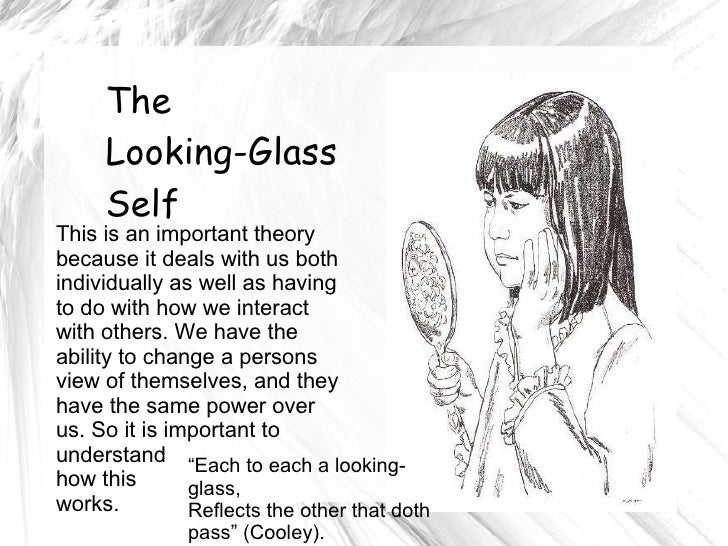Taking time to stop, think, and reflect on the art of human communication as an educator and a learner.
Wednesday, December 16, 2015
Teachers. Everywhere.
I've spent the last couple of days at the TIES Conference in Minneapolis. This was an international conference with teachers from all over the United States and Canada. It was awesome! But it was also obvious that there was a culture of teachers, everywhere. The clothing, the bags, the acronyms: all these things gave away to an obvious culture. While walking through the vendors, they were able to not only identify us as teachers, but they were also able to often identify the level and subject matters we taught just by looking at us. I saw this as not only identifying a culture, but maybe a little bit of stereotyping, too.
Tuesday, December 8, 2015
Dirty laundry and ethnocentrism
I am a big fan of the show The Amazing Race, and due to life getting in the way, my hubby and I have fallen a few episodes behind (no spoilers please!). Last night we were curled up on the couch watching an episode, and I found myself guilty of ethnocentrism. One of the challenges had to do with doing laundry in India. Individuals would bring large white bags full of scarves to a beach where they would put the dirty scarves in large kettles, stir them up with soap, rinse them in the nearby river, and then lay the scarves out to dry on the sand. I couldn't help but wonder how this was actually cleaning the scarves. I found myself asking questions aloud and even judging their techniques based on how I'm used to doing laundry. BAM! Ethnocentrism. I even paused the tv to email myself a reminder to blog about it later.
One of my favorite things about The Amazing Race is seeing how other cultures live, eat, and do things differently, and sometimes ethnocentrism gets in the way of learning.
One of my favorite things about The Amazing Race is seeing how other cultures live, eat, and do things differently, and sometimes ethnocentrism gets in the way of learning.
 |
| Source: http://i736.photobucket.com/albums/xx9/xangatheamazingracecaps3/The%20Amazing%20Race%2027/Episode%209/TAR2709-1142.jpg |
 |
| Source: CBS.com |
 |
| Source: CBS.com |
 |
| Source: https://s-media-cache-ak0.pinimg.com/236x/85/c5/f8/85c5f8fd2255b5408184c8249024133f.jpg |
Friday, December 4, 2015
Words that echo through time...
Before Kindergarten, I attended an in-home daycare run by a family friend of my dad's. My "daycare mom" had a short name, Pat. I don't have a lot of memories of my time there aside from cold cereal for breakfasts, episodes of Scooby-Doo and The Price is Right, and playing outside in a driveway on small bikes and Big Wheels with other children. I also remember some words, vividly.
I was a confident child with a high self-esteem. I would often dress in pink and announce that I was pretty, or pretty like a princess. Every time I would announce this in the presence of my "daycare mom," she would follow with an insult. It would go like this:
Me: I'm pretty!
Her: Yeah, pretty ugly. *chuckle*
Me: No, I'm pretty! Pretty like a princess!
Her: Yeah, pretty. Pretty ugly, just like I said.
Those words were damaging, because I eventually believed them. I struggled with low self-esteem and poor self-perception for years, from pre-kindergarten into my junior and even senior year of high school. Even as an adult, I can still hear her in my head some days, but I've worked hard over time to change that perception using mostly affirmations and corrections when I get hard on myself.
I was a confident child with a high self-esteem. I would often dress in pink and announce that I was pretty, or pretty like a princess. Every time I would announce this in the presence of my "daycare mom," she would follow with an insult. It would go like this:
Me: I'm pretty!
Her: Yeah, pretty ugly. *chuckle*
Me: No, I'm pretty! Pretty like a princess!
Her: Yeah, pretty. Pretty ugly, just like I said.
Those words were damaging, because I eventually believed them. I struggled with low self-esteem and poor self-perception for years, from pre-kindergarten into my junior and even senior year of high school. Even as an adult, I can still hear her in my head some days, but I've worked hard over time to change that perception using mostly affirmations and corrections when I get hard on myself.
Monday, November 30, 2015
Jody, the guy with a girl's name
I don't know about you, but I really entertained by Jody's presentation today. Not only that, but I was able to make a lot of connections to what we are learning and will learn in Interpersonal Communication. I've heard the Power Talk presentation done by five or so different speakers, and I have to admit that Jody brought a whole new perspective! Here are a few of the concepts I can connect:
1) Culture. Right away, we, as a group, noticed that Jody represented a different culture when he said, "Y'all." He addressed it and identified who he was (clarified the difference), which made us all a little more comfortable.
2) Physical nose. I noticed quite a few examples of physical noise beyond the obvious during the presentation today. One big one was the technology not working. The squeaky band stand was one, too, but he covered that awkwardness well. The bells during the speech was one, too. That one represented out culture at the high school, because we all knew why it rang, but Jody didn't.
3) Psychological noise. That one was for me. I got a little internally distracted every time Jody said "y'all and "crud" for some reason. It was distracting. The blue screen when the technology switched off got me distracted, too.
4) Listening. We'll spend all of chapter 4 talking about the concept of listening, like listening vs. hearing and how to be an active listener. That will all come back.
5) Perspective. Jody mentioned this a few times. We'll get into that in Chapter 3. I even found a new video to show for that this past weekend.
Sunday, November 29, 2015
I hear ya! Er, I see you? I think you know what I mean...
Something we'll learn about in an upcoming chapter is active listening. I realized today in church that I was showing all the signs of an active listener from eye contact, head nods, and verbal responses. I looked around at one point and realized there were quite a few people looking in other directions, holding non-responsive facial expressions, and even playing with their phones. I kept my eyes on the pastor and his face when he looked at those individuals, and realized he kept coming back to me, maybe because he knew I was paying attention still.
This got me thinking about my own classrooms. There are times when I am teaching a new concept that I can start to see students glaze over or get distracted by something else, not actively listening any longer, but there's always a couple in each class who keep the active listening signals going; I often look to those faces for reassurance just as my pastor was doing to me.
Seeing that full-circle really struck me.
This got me thinking about my own classrooms. There are times when I am teaching a new concept that I can start to see students glaze over or get distracted by something else, not actively listening any longer, but there's always a couple in each class who keep the active listening signals going; I often look to those faces for reassurance just as my pastor was doing to me.
Seeing that full-circle really struck me.
Wednesday, November 18, 2015
So much noise!
A big part of Chapter 1 talks about the concept of noise. There are four kinds of noise it addresses, and already today I've been greatly distracted by two of them.
The first is physical noise. Starting about halfway through my day yesterday, the vent in the back of my room started squeaking. It was described as a cricket, a sprinkler, and even a squeaky chair/desk. For someone in my room for a short while, it might not have been very noticeable, but after listening to it for a full day, I was pretty certain I could hear it even after I left. Some students shared it made them unable to concentrate while reading yesterday; one student went so far as to cover her ears. That's a pretty clear example of it being physical noise, for her especially.
Another kind of noise I am experiencing is psychological. In other words, my mind is distracted. Last night, my oven stopped working. That's not good with Thanksgiving around the corner, and two meals yet this week dependent on using the oven. Plus, I LOVE baking holiday treats! Because I don't like things unfinished, my mind keeps going back to my family's need for a new stove while we are on a budget for my son's birthday and the holiday season in general. I spent much of my prep first block doing research on affordable ovens in the area rather than what I had written on my to-do list because I was preoccupied with the need for an oven whenever I tried to get something done on my to-do list. This is a great example of psychological noise!
For those of you still trying to figure out the differences between the kinds of noise we discussed, I hope this helped a little bit.
The first is physical noise. Starting about halfway through my day yesterday, the vent in the back of my room started squeaking. It was described as a cricket, a sprinkler, and even a squeaky chair/desk. For someone in my room for a short while, it might not have been very noticeable, but after listening to it for a full day, I was pretty certain I could hear it even after I left. Some students shared it made them unable to concentrate while reading yesterday; one student went so far as to cover her ears. That's a pretty clear example of it being physical noise, for her especially.
 |
| source: http://healtheatingfood.com/wp-content/uploads/2014/07/Loud-noise-health-effects.jpg |
Another kind of noise I am experiencing is psychological. In other words, my mind is distracted. Last night, my oven stopped working. That's not good with Thanksgiving around the corner, and two meals yet this week dependent on using the oven. Plus, I LOVE baking holiday treats! Because I don't like things unfinished, my mind keeps going back to my family's need for a new stove while we are on a budget for my son's birthday and the holiday season in general. I spent much of my prep first block doing research on affordable ovens in the area rather than what I had written on my to-do list because I was preoccupied with the need for an oven whenever I tried to get something done on my to-do list. This is a great example of psychological noise!
 |
| Source: http://www.essentialappliance.com/Pictures/uncooked_turkey.png |
For those of you still trying to figure out the differences between the kinds of noise we discussed, I hope this helped a little bit.
Thursday, May 21, 2015
No, I'm not crying...
It is common knowledge that I've had a tough past 7 days or so. I'm also feeling a little stressed with packing, grading, lesson planning, and senior activities. With this in mind, I do understand why someone who saw my eyes watering would think that I am on the verge of tears, but I'm not. This example of nonverbal communication is actually related to either allergies or the new contact solution I am trying. My eyes are dry and itchy, which means my eyes keep watering to relieve that discomfort; it isn't due to crying. I got most of that out of my system before returning to school.
Subscribe to:
Posts (Atom)

